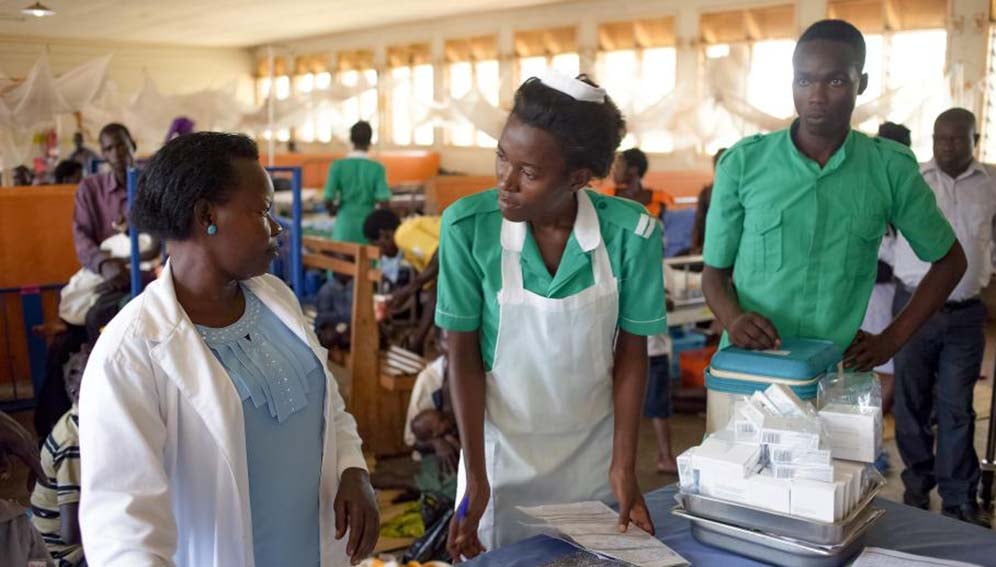14/11/25
New malaria drug heralds resistance breakthrough

By: Ben Deighton
Send to a friend
The details you provide on this page will not be used to send unsolicited email, and will not be sold to a 3rd party. See privacy policy.
[LONDON, SciDev.Net] The first new malaria treatment in decades holds promise against rising drug resistance after Swiss drugmaker Novartis announced it was as effective at treating the disease as established treatments.
The new drug—known as GanLum—uses a completely different mechanism to fight the malaria parasite, meaning it works even when the parasite is resistant to existing treatments.
“Its novelty lies in the molecule it contains called ganaplacide which is completely new and unlike any existing antimalarials currently in use,” said Michael Delves from the London School of Hygiene and Tropical Medicine, who was not involved in the trial but helped in the early stage of the drug’s development.
“This means that Plasmodium, the parasite that causes malaria, has never seen it before and therefore has no defence against it.”
Drug-resistant malaria was first observed in Cambodia in 2008 and has been observed more recently in several African countries, including Rwanda, Uganda, and Tanzania, according to the WHO.
GanLum proved to be effective in a late-stage trial of over 1,600 malaria patients across 12 countries in sub-Saharan Africa, Novartis said in a media release on Wednesday (12 November). Given as a sachet of granules once a day for three days, it cured 97.4 per cent of participants, compared to an existing treatment, which cured 94 per cent.
Transmission
As well as treating the symptoms of malaria, the drug also stops malaria from spreading as it targets the parasite as it prepares to transmit the disease to mosquitoes.
“Breaking this cycle of infection means that we can drive down new cases of malaria and prevent the spread of drug resistance,” Delves told SciDev.Net.
Regulatory approvals could come in around 16 months, meaning it could be available on the market in 2027, according to Medicines for Malaria Venture, which developed the drug in collaboration with Novartis.
If approved, the drug would be the first new malaria treatment on the market since artemisinin-based combination therapy was introduced in 1999.
“GanLum could represent the biggest advance in malaria treatment for decades, with high efficacy against multiple forms of the parasite as well as the ability to kill mutant strains that are showing signs of resistance to current medicines,” said Abdoulaye Djimdé from the University of Science and Technology, of Bamako, Mali, in a media release.
Sally Nicholas, head of vector control and therapeutics, infectious disease at Wellcome, who was not involved in the trial, said: “As the first malaria treatment with a novel mechanism since 1999, it offers vulnerable communities real hope against drug resistance and transmission.”
Mounting resistance
Growing resistance to artemisinin-based treatments poses a significant threat to global malaria control efforts.
Olugbenga Mokuolu, professor of paediatrics at Nigeria’s University of Ilorin and scientific advisor on malaria for the country’s Ministry of Health, told SciDev, Net: “Having an effective non-artemisinin therapy is important because it provides an additional tool as we continue to confront growing artemisinin resistance.
“This combination offers a valuable alternative within the antimalarial portfolio, especially for regions where resistance is emerging.”
Novartis presented the trial data at this year’s American Society of Tropical Medicine and Hygiene annual meeting in Toronto, Canada.
The president of the society, David Fidock, who heads a group of experts on antimalarial drug resistance that advises the WHO Malaria and Neglected Tropical Diseases programme and was not involved in the study, hailed the “innovative ways of fighting drug-resistant malaria” presented at the meeting.
The new compound was first identified as having potential to fight malaria after a screening of 2.3 million molecules to find drug candidates at Novartis labs in San Diego, California in collaboration with Swiss Tropical and Public Health Institute, Wellcome Trust and Medicines for Malaria Venture.
This article was produced by SciDev.Net’s Global desk with additional reporting from Jackie Opara in Lagos, Nigeria.

